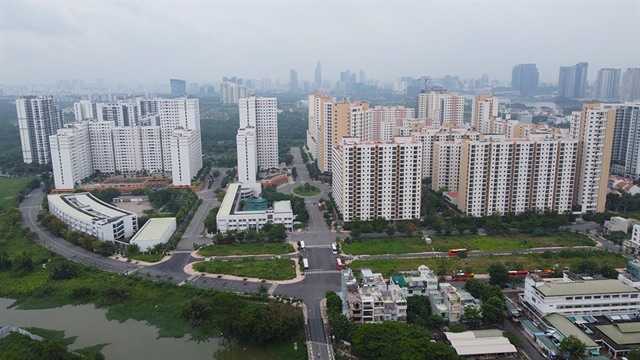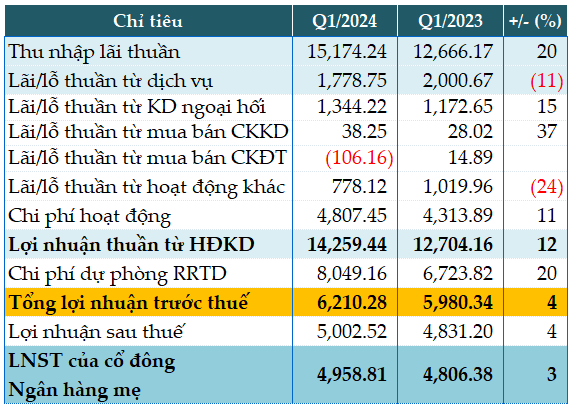After more than two years being stalled by the Covid-19 pandemic, many people had hoped that new social housing policies would help address the urgent issue of affordable housing for low-income people. However, after an initial period of strong promotion with plans and goals, it seems that this wave has not yet overcome the previous procedural barriers.
The yearly social housing development plan sets the number of projects, but the transformation of these planned figures into reality is very limited. In Ho Chi Minh City’s plan for the period of 2021-2025, the city is expected to develop about 2.5 million square meters with 35,000 units. However, only 2 social housing projects with 623 units have been completed and put into use by the second quarter of 2023. It can be seen that there is a big gap between the plan and reality.
 Social housing needs to consider many issues to optimize the set plans. Illustrative photo: Le Quan |
To bridge this gap, the management agencies are encouraging businesses to invest and cooperate with local authorities to solve the social welfare housing issue. However, at the social housing promotion conferences, many businesses continuously share their concerns about the difficulties in participation. Many businesses wanting to develop social housing have complained about the complicated procedures, high investment costs, and lack of clean land funds.
According to the current regulations, social housing projects are exempted from land use fees, but these projects still have to go through land valuation. Next, the investors have to advance money to clear the site (which will be deducted from other projects or offset against land price later).
The process of implementing construction projects usually takes more than 5 years, and then the projects are audited. Only when the auditing is completed, the enterprises can receive a fixed profit of 10%. Meanwhile, throughout the project implementation process, the enterprises themselves are also uncertain, which costs will be considered reasonable and valid, and which fees will not be settled. Therefore, social housing businesses are always in a state of “luck, misfortune”.
Every time a conference is held to promote social housing, the hurdles continue to be mentioned, and the discussion stops there even though the deadlines for the established plans are close. Moreover, the yearly social housing development plans include an increasing number of apartments as the plans transition from one stage to another. As a result, the localities have new projects to add to the housing plans, but whether the plans will be achieved or not is still uncertain.
The complex procedures and investment issues are causing the housing supply to lag behind the demand. Moreover, from the perspective of people with low incomes, even accessing completed projects is also difficult. The process consists of many steps, through various functional agencies to resolve, not only does it take too much time, but even the motivation to complete the application file also decreases.
In addition, the threshold for taxable income at 11 million VND/month when selecting profiles for approval is also a barrier. In a city like Ho Chi Minh City, people with a taxable income of 11 million VND/month (including dependent expenses of 4.4 million VND/person/month) are bound to struggle to make ends meet, not to mention saving money. The price of social housing in Ho Chi Minh City is also much higher than in other localities, so equating the income threshold in the housing purchase criteria in Ho Chi Minh City with other localities causes many profiles to be disqualified.
At a recent conference, an expert candidly expressed the opinion: “The mistake of the social housing program is selling houses to people who cannot afford to buy. Even if the interest rate is reduced to 0%, people with incomes below the taxable income threshold still cannot afford to buy.”
So should the issue be framed in terms of low-income people having to buy a house if they are unable to afford it? Or do we need to structure the supply appropriately for each target group to achieve efficiency?
In addition to selling and renting social housing, promoting policies to develop social housing for rent is also necessary. Otherwise, there is a risk that social housing will be sold to financially well-off people. Meanwhile, the initial plan of social housing primarily aims at the low-income group (usually below the individual taxable income threshold).
From the perspective of policies and reality, when both management agencies and businesses have not been able to address the existing issues of social housing, urban workers have already reconsidered whether they should own a house in big cities or not. It can be seen that the perception of many people has changed after experiencing crises from the pandemic to economic downturns. The working models have also shifted to some extent, so the priority goals of low-income people in big cities are also gradually changing, and they pose more considerations.
If they cannot own assets, they choose to have more control over their living environment in an optimal way. Therefore, restructuring towards increasing low-cost rental products is something to consider to help “society” have optimal and true access to social housing.
Bình Nguyên








































